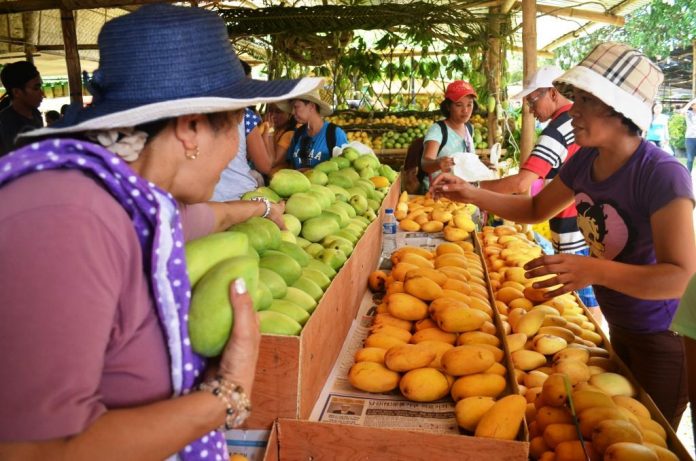
ILOILO City – Guimaras is now exporting its mangoes, known worldwide for their sweetness, to Russia.
“I would like to announce to the people of Western Visayas nga nag-umpisa na mag-order ang Russia from Guimaras two metric tons of mangoes per week,” said Secretary Emmanuel Piñol of the Department of Agriculture (DA).
Piñol conferred with Guimaras mango growers yesterday. DA wanted to them to sustain the mango export.
Some mango growers complained having difficulty dealing with fruit flies, especially during the rainy season.
“Nag-agree kami to launch a community-based action to eradicate fruit flies from Guimaras,” said Piñol.
This community-based action is spraying mangoes with agents that would keep fruit flies and other insects away from mango trees.
Piñol said the DA would be providing mango growers with the equipment for spraying.
The Russian company buying Guimaras mangoes and shipping them to its mother country is the Exim Pacific. Pending the development of more direct shipping links, the mangoes would be shipped via Bangkok, Thailand.
Piñol, during a recent visit to Russia, found out that mangoes being sold in Russia were imported from Thailand, India and Pakistan. He said he was able to inspect a Russian store which sold mangoes from these countries at a price equivalent of P1,000 each.
“I was shocked. Those mangoes were not even half as sweet as the Philippine mango,” said Piñol.
Guimaras’ sweet mangoes were awarded the Geographical Indicator (GI) seal in 2017. The GI seal stamped in each mango fruit means it is an authentic product of Guimaras.
Guimaras has over seven thousand mango growers. The mango population is over 200 thousand trees but they are not fully maximized due to the limited resources of growers, especially on financing.
At present, 70 percent of the mango plantation in Guimaras is grown in backyard and 30 percent in the orchard. Except for one small plantation that sells its product abroad, the other mango produce goes to the local market.
Last September 2018 during a visit to Guimaras, Piñol brought with him technical experts on mango rejuvenation to help farmers rehabilitate old mango trees and those that were sprayed by chemical pesticides.
Once rejuvenated, a mango tree can have an average yield of 1.5 metric tons from the current average of 500 kilograms. (With a report from the Philippine News Agency/PN)





